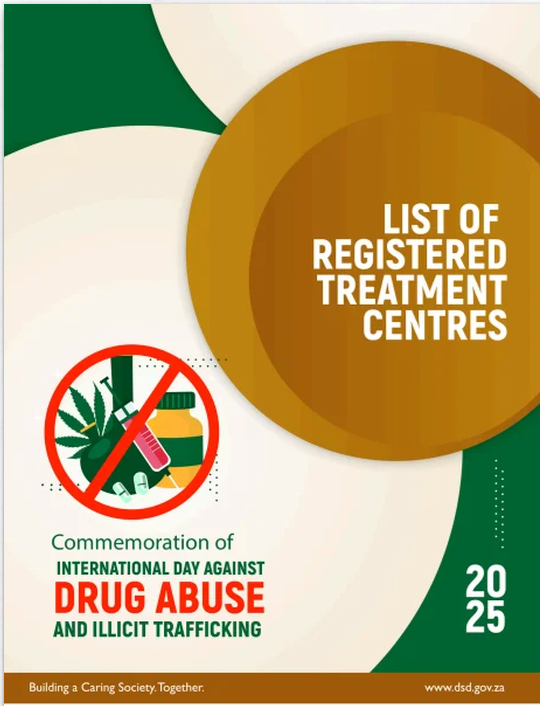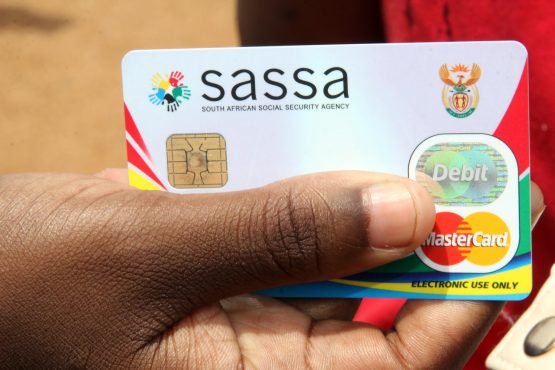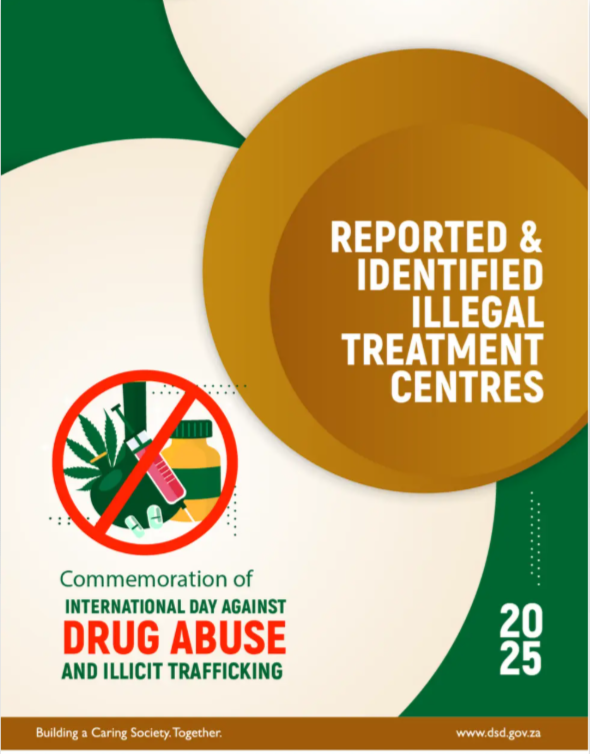Programme Director and Act. DG of Social Development, Mr Linton Mchunu,
Deputy Minister of Social Development, Ms Hendrietta Bogopane-Zulu and MECs of Social Development who may be joining us virtually,
CEO of the NDA, Ms Thamo Mzobe,
CEO of SASSA, Ms Totsi Memela-Khambula,
Members of the media,
Ladies and gentlemen, good afternoon.
- When the President announced the re-introduction of the Special COVID-19 Social Relief of Distress (SRD) Grant, I was not only very happy, but also very encouraged by the care and commitment that our President and indeed government had shown in cushioning the poorest and distressed in our country, especially given the continued hardship that our people are still experiencing as a result of the ongoing pandemic and the devastating effects it is continuing to have on our country and households.
- It would be recalled that on multiple occasions, I had indicated that the Department had been engaging with the relevant departments for the extension of this grant, given the positive impact the grant had during the first iteration. Not only did we manage to reduce hunger and vulnerability among poor households but we were especially successful at reducing poverty and inequality through the provision of both the SRD grant and the caregiver allowance that was initially provided.
- For example, according to NIDS-CRAM research and findings, for the period between March and June 2020, COVID-19 relief measures were estimated to have reduced the number of households with incomes below the food poverty line from 20.6% to 18.8, and a reduction in inequality from 0.644 to 0.613. In addition, research confirmed that the majority of recipients used the money to buy food.
- We have also highlighted that the Special COVID-19 SRD grant should ideally be a stepping stone to a Basic Income Grant. We are currently working on the Policy aspects surrounding this, including the implementation and resource mobilisation aspects related to this Grant, working with various stakeholders through a series of consultations and will provide updates on same accordingly.
- It is also important to highlight that all recipients who may have not received some of their payments during the first iteration of the grant between May 2020 – April 2021 will certainly receive their payments and this new iteration will not affect those payments. For this new iteration, we have been allocated R26.7billion which is inclusive of administrative costs borne by SASSA, and this is for a period of 8 months with effect from August 2021 until March 2022.
- During the first iteration of the grant, almost 10 million applications were received with just over 6 million approved for payment to the tune of R24 billion and an additional R15 billion was paid as top-ups for a period of 6 months to all grant types. We are also pleased that 100% of these applications were online or digital applications which actually quickened the entire process. We have taken note that the majority of the previous applications were paid to males between the ages of 18-35 and in order to address this gender imbalance, the grant has now been opened to include caregivers, the majority of whom are women.
- I must acknowledge the role that the Auditor- General played in alerting us to some of the challenges we needed to be mindful of in implementing this grant and we have taken lessons from this process which we will be utilising in this new iteration.
- One of the lessons learned is to ensure that we have all the relevant databases required to verify all applications. This does require a commitment from the whole of government to provide accurate and current information. From a fraud and corruption aspect, SASSA is recovering monies from those who benefitted wrongly and have referred some matters to law enforcement agencies for further actioning and possible arrests. We have also strengthened our controls in this regard and will deal differently with for example government officials who may apply for the grant through working with the DPSA.
- The application channels will be opened from Friday, 06 August 2021 and we expect that first payments to be made in the last week of August 2021.
THE ELIGIBILITY CRITERIA FOR THE COVID-19 SRD GRANT, WILL BE AS FOLLOWS:
9.A Social Relief of Distress Grant of R350 per month as indicated in the Directions is payable for the period indicated therein to a person who is —
(a)a South African Citizen, Permanent Resident or Refugee registered on the Home Affairs database and persons who are holders of special permits under the Special Angolan Dispensation, the Lesotho Exemption Permit dispensation and the Zimbabwe Exemption Permit Dispensation, and asylum seekers whose section 22 permits or visas are valid or were valid on 15 March 2020;
(b) Currently residing within the borders of the Republic of South Africa;
(c) above the age of 18 and below the age of 60;
(d)unemployed;
(e)not receiving any social grant in respect of himself or herself;
(f)not receiving an unemployment insurance benefit and does not qualify to receive an unemployment insurance benefit;
(g)not receiving a stipend from the National Student Financial Aid Scheme and other financial aid;
(h)not receiving any other government COVID-19 response support; and
(i)not a resident in a government funded or subsidised institution.
- Care givers who are not receiving any grant on their own behalf will also have to apply for the special Covid-19 Social Relief of Distress Grant.
- We would like to reiterate that only those who meet the criteria and have no financial support from any source should apply for this grant. It is also important to emphasise that the previous SRD grant expired on 30 April 2021 and this means that all those who had previously applied must re-apply again, in order to enable us to assess their eligibility as we did every month during the previous period, and all applications will be treated as new applications every month. However, each applicant need only apply once – thereafter the application will be considered monthly.
- There will be no retrospective payments for the months the grant was not in existence – from May to July 2021. The new application will only be effective from August 2021. The applications shall be considered from the month of application and paid up to 31 March 2022 provided the qualifying criteria continue to be met. This requirement will be confirmed through the monthly validations of every application. It is important to note that there will be NO AUTOMATIC QUALIFICATION - all applications must satisfy the criteria and will be subjected to the entire validation process.
- Allow me to explain why it is important for people to re-apply.
- Firstly, that people’s circumstances may have changed over time;
- Secondly, in order to confirm clients’ personal details, and assess their income and financial status;
- Thirdly, applicants need to accept the declaration and consent, which has been strengthened to comply with the Protection of Personal Information Act (POPIA); and
- In order to access or to have the application reconsidered for the Social Relief of Distress Grant, an applicant must grant consent for SASSA to verify his or her identity, residency, income or social security benefits with any other institution deemed necessary by SASSA.
- We have implemented some system improvements, to enable us to better serve the applicants and speed up the verification and payment turnaround times. Our new process will now request the applicants to provide their banking details upfront, so that we can process payment as soon as they meet the criteria. This will help address the challenge we faced in the past where some applicants took long to respond to our request for banking details which led to delays in processing their payments.
- Noting that COVID-19 is still very much upon us, we will continue with measures to limit face to face interactions to manage social distancing and use the frontline application systems which had proven to be successful during the initial implementation of this grant. All applications will therefore be again done electronic/digitally and any of the following frontline application channels may be used;
- Firstly, through the website at https://srd.sassa.gov.za;
- Through our WhatsApp line on 082 046 8553; or
- The USSD line *134*7737#
Please note that an application should be submitted through only one of the above channels – it is not necessary to submit multiple applications. Confirmation will be received as soon as the application has been successfully submitted.
- We encourage all applicants to conclude their applications when they start making the applications to avoid any technical challenges.
WITH REGARDS TO PROCESSING AND DISBURSEMENT SYSTEM:
- The system developed over the past year has been improved to manage the numbers of applicants and payments monthly. In addition, improvements continue to be made to improve the service to applicants. Applicants are also reminded that this grant is validated every month. This means that any change to the financial circumstances of the applicant may result in the grant not being approved for subsequent months, or approved for some months but not all.
- WITH REGARDS TO PAYMENTS OF THE SPECIAL COVID-19 SRD GRANT, SASSA shall pay the Special COVID19 SRD Grant into a bank account of the beneficiary. With applicants who are unbanked or do not have bank accounts, SASSA will pay through SAPO/Post Bank; or a Bank Mobile Money Transfers (cash send).
- It is important for applicants to note that the bank account or the cellular phone number provided for payment MUST be registered in the name of the approved applicant for the grant to ensure that payment goes to the correct recipients. We also appeal to all applicants to provide information on a bank account through which they can be paid, so that we can reduce the long queues at the post office branches and improve convenience to all our clients. It is also important for every applicant to provide the correct mobile number through which he/she can be contacted, as all communication with applicants will be through sms notifications.
- SASSA and the South African Post Office are hard at work developing additional channels through which approved applicants can access their funds, to reduce the queues at the post offices. This will include access to the funds through participating merchants and ATMs. Further information will be provided in the course of the coming days in this regard. Clients who previously cancelled the grant, and who would like to re-activate the grant, due to a change in their circumstances are welcome to re-apply.
- Any applicant whose grant is not approved has the right to request that the decision not to award the grant be reconsidered through an appeals process. The decline will only be reconsidered upon a request from the client – an application has to be lodged on the website within 30 days of the outcome being available. It is therefore really important that applicants check their status, which is updated on the website as soon as a decision is made. An appeal must be lodged for every month that the grant is declined.
- I want to once again reiterate that this grant is for people who are under distress. We have in the past year established that there were public servants, business people and children from financially comfortable families who applied for the grant. I really want to plead with members of the public, if you do not need this grant - please refrain from taking away from the people who are truly in need. We will continue to monitor any fraudulent activity, and SASSA will implement measures to recover every cent from those who benefitted wrongly, and will refer these matters to law enforcement agencies for further action and possible arrests.
- With respect to the previous Special COVID-19 SRD grant benefits paid during the period from 01 May 2020 - 30 April 2021 –
- Outstanding payments are in the region of 45,414 (transactions) from applicants whose applications were approved but not paid because they could not be traced or they did not contact SASSA to update their personal details;
- A total of 571,724 grants which have been approved remain uncollected from the post office and I urge all applicants who have not received or claimed their grants to urgently contact SASSA, as they will only have until 31 August 2021 to make enquiries in respect of the previous grant from May 2020 to April 2021. I also wish to urge those who have not withdrawn their payments to do so before 31 August 2021. After 31 August we will not be able to consider any enquiries relating to the previous grant.
- Any applicant whose application was approved but not paid because the applicant could not be traced or the applicant did not contact SASSA to update his or her personal details, shall forfeit the money to the State after 31 August 2021 and such applicant shall not be able to lodge any claim against the State.
- Yesterday, was the start of the August pay-run with payments to older persons and payments went very well across the country – we thank our stakeholders, particularly the banks and the retail sector for their support in this regard especially given the challenges they experienced during the uprisings last month.
- These challenges were heightened by the recent events during the week of 08-15 July 2021, when we all experienced unrests in both KwaZulu-Natal and Gauteng which led to the disruption of services, the destruction of infrastructure and vehicles, as well as looting of businesses and government offices in various areas. Our social development services were not spared, as some of our offices including SASSA and Post Office service points were also destroyed. Three SASSA offices and 21 SAPO offices were impacted, along with 5 DSD offices that were located at Bridge City Mall, Illovo Development Centre in eThekwini, Ixopo, Vulamehlo and Richmond. Damages ranged from complete burning down of some of the offices, to looting of computers, PPE items, office furniture and essentials. Essential documents were also destroyed, and 17 vehicles belonging to DSD in KZN and were either stripped or damaged.
- The destruction of public infrastructure and shopping malls the food supply chain, and compromised food security for many households, and has resulted in job losses and further erosion of our already fragile economic prospects. While many expressed frustration and desperation as part of the motivation for these events, I wish to add my voice to those who have condemned these scenes of violence, and urge our communities to find less destructive and self-defeating approaches to raising their concerns and I think that dialoguing and finding lasting solution to some of the challenges we face, is one such approach.
- The National Department including in Provinces, is working hard with SASSA and the affected provinces to repair and re-instate some of the affected services so that we can rebuild and recover what was lost. In addition, we have been working closely with other government departments and civil society organisations, private sector as well the Solidarity Fund to provide food to the most affected households.
- Essentially, our interventions as a DSD Portfolio in these 2 Provinces have been through;
- Restoring and providing services to our people in affected areas;
- Providing food relief through our Social Relief of Distress mechanisms and within available means, both at Provincial Departments and at SASSA – whether through cash, food parcels and food vouchers;
- Providing Psychosocial Support Services to affected families, as well as support to affected children – in this regard we have also elevated our Real-Time Monitoring Tool to include the effects of children during the unrests, linked to our rapid impact assessment which we had implored; and
- Working with relevant departments, and structures including the inter-faith community, NGO’s, Community Leaders and with the NDA, we are working hard towards social mobilisation, rebuilding and creating sustainable livelihoods through our efforts to address issues of social cohesion and social behavioural change.
- Lastly, I wish to encourage all those who are eligible, including those who benefitted before and are still in need to apply as from the 6 August 2021 onwards.
- The rapid assessment study that we conducted found that the around 88% of recipients of the Special COVID-19 SRD grant pooled the grant with their other household incomes to take care of the needs of everyone in the household. I wish to encourage households to continue to do this, so that we can extend the reach of the grant to reduce poverty, and even support other initiatives such as job searches, livelihoods and other small business strategies.
- Our systems are ready, better improved to respond more rapidly and with agility and ready to serve our people and we look forward to rendering the support to our clients and ensuring that they have the best customer experience through our services.
- I thank you.





